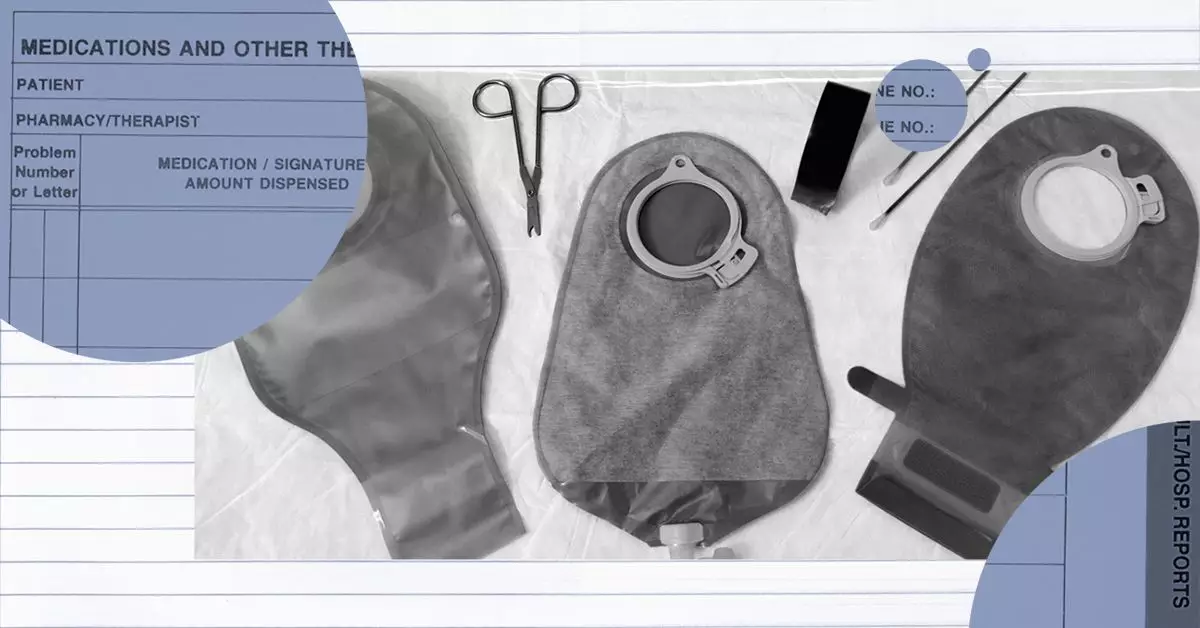Ileostomy bags play a vital role in the lives of individuals who undergo ileostomy surgery, a necessary procedure often prompted by various gastrointestinal disorders, including Crohn’s disease. This article endeavors to provide a thorough understanding of what an ileostomy bag is, essential care practices, and lifestyle adaptations that can facilitate a smoother transition to living with this medical aid.
An ileostomy bag is essentially a pouch that is securely attached to a surgically created opening known as a stoma in the abdominal wall. Its primary function is to collect digestive waste that would normally exit the body through the rectum. The decision to undergo an ileostomy is typically made as a last resort when other treatments fail to provide relief from chronic conditions that affect normal bowel function. For many, having an ileostomy can offer a newfound lease on life, reducing symptoms and allowing the intestinal tract to heal.
Despite the negative connotations often associated with such procedures, patients often report significant improvement in their overall well-being post-surgery. However, it is essential to address the challenges that accompany this new lifestyle, particularly regarding bag maintenance and skin care.
Essential Care Tips for Ileostomy Bags
Proper care of the ileostomy bag is crucial for the prevention of complications such as leaks, skin irritation, and infections. Regular emptying of the bag is essential. For optimal function, patients should empty their bag once it is filled to about a third or half of its capacity. Doing so minimizes the risk of leakage and maintains comfort beneath clothing.
It is equally important to maintain the skin around the stoma. Patients should meticulously clean and dry the area every time the bag is emptied or changed. This practice minimizes irritation and the potential for infections, which can be a common concern in individuals with an ileostomy. Should skin problems arise, it is essential to consult a healthcare provider for advice, as they may recommend appropriate treatments or adjustments in care routines.
Changing the ileostomy pouch is another critical aspect of care. Typically, patients are advised to switch to a new pouch every two to three days. However, this timeline may vary depending on the individual’s output and the specific type of bag being used. Some users may find that their pouch remains functional for up to a week, though personal preference for change frequency can differ significantly.
Adapting to life with an ileostomy involves making certain lifestyle adjustments to ensure both comfort and health. For instance, individuals are often advised to steer clear of tight clothing that may place excessive pressure on the stoma and the pouch. Loose-fitting garments can provide better comfort and reduce the risk of complications.
Additionally, dietary modifications may ease the transition. Consuming smaller and more frequent meals can help manage digestive output, while patients may want to avoid large meals, particularly in the evening, to prevent nighttime bowel movements from the ileostomy bag. Awareness of food choices is crucial as some foods can increase gas or lead to blockages, which are undesirable outcomes for someone with an ileostomy.
Health Outlook for Ileostomy Patients
It is a commonly held misconception that having an ileostomy bag can adversely affect life expectancy. In reality, while the medical conditions necessitating an ileostomy may pose a risk for reduced longevity, the procedure itself does not inherently jeopardize a person’s life span. In fact, an ileostomy can enhance the quality of life significantly by alleviating distressing symptoms and preventing the severe complications associated with chronic conditions.
Individuals are encouraged to engage openly with their healthcare professionals, share concerns about their condition, and seek educational resources that can empower them in managing their ileostomy. Community support groups and online forums can also provide valuable insights and emotional support.
While the adjustment to living with an ileostomy bag requires dedication to care and adaptation to new routines, many individuals find that with the right knowledge and support, their quality of life improves markedly, marking a positive turn in their health journey.

